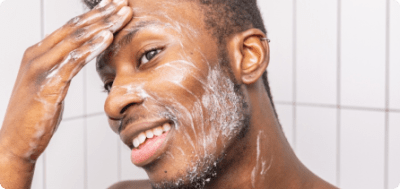
Polyhydroxy Acids
Polyhydroxy acids (PHAs) work by gently dissolving the keratin that binds our outermost layer of skin cells, encouraging the natural exfoliation process of the skin, leading to smoother, clearer skin. This process also encourages new skin cell generation in the basal layer of the epidermis and with repeated use this can have an overall anti-ageing effect on the skin. PHAs are much larger in molecular weight vs AHAs so they cannot penetrate the skin as fast or as far, which therefore makes more gentle & suitable for more sensitive skin types, including those with rosacea-prone skin. Gluconolactone is also especially good for drier skin types as it also has natural humectant qualities, meaning it draws water towards it, hydrating the skin from within. Polyhydroxy acids (PHAs) are a class of ingredients also known by gluconolactone, lactobionic acid, lactobionic acid (pha) and maltobionic acid.
What is Polyhydroxy Acids?
Polyhydroxy Acids (PHAs) are a group of gentle chemical exfoliants used in skincare. They are milder alternatives to traditional alpha hydroxy acids (AHAs) and beta hydroxy acids (BHAs).
What does Polyhydroxy Acids do?
PHAs offer benefits such as: - Exfoliate the skin's surface, helping to remove dead skin cells and improve skin texture. - Promote skin renewal and cell turnover, leading to a brighter and more even complexion. - Provide hydration to the skin by attracting moisture, making them suitable for dry and sensitive skin types. - Help enhance the skin's natural barrier function, improving its resilience and protection against environmental stressors.
Who is Polyhydroxy Acids good for?
If any of the following apply Polyhydroxy Acids might be a good option for you:









Who should avoid Polyhydroxy Acids?
If any of the following apply it might be best to avoid Polyhydroxy Acids:



Complete our quick quiz, then upload photos or book a video call (priced at £20 or £35)


Our award-winning AI analyses your skin before your aesthetician creates your personalised routine


Message your aesthetician with any questions and check-in as your skin changes for ongoing advice

